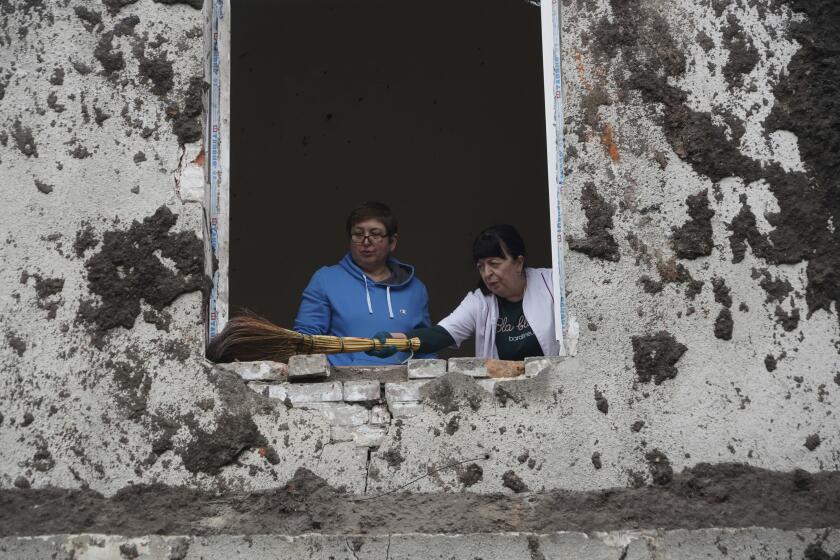Q&A: Cerebral candidate is surprise front-runner in Colombia
The surprise of the Colombian presidential campaign has been the surge of Bogota’s former mayor, Antanas Mockus, from nowhere to the top of voter preference polls in advance of first-round voting on May 30.
After twice running unsuccessfully, the cerebral Green Party candidate owes his lead to an alliance with another popular ex-mayor, Medellin’s Sergio Fajardo, as his vice presidential running mate; the support of young voters; and his use of online social media. Though Colombians admire outgoing President Alvaro Uribe, a significant number of them are fed up with political scandals and want a new direction.
A 58-year-old former university rector and the son of Lithuanian immigrants, Mockus is the quintessential anti-politician, touting ethics and good citizenship. He attributes the reduction in crime during his two mayoral stints to restricting alcohol sales in trouble zones, as well as urging Bogotanos to restrain “the rude person inside of us.” Mockus recently disclosed that he suffers from early-stage Parkinson’s disease but said his neurologists assured him that he has 10 years before the malady becomes debilitating. He spoke with The Times after a campaign rally here in the heart of Colombia’s coffee-growing district.
Speaking of Plan Colombia, the U.S.-funded program to combat drugs and terrorism, U.S. Ambassador William Brownfield said he has never seen two countries more in sync than Colombia and the United States. As president, would you maintain that?
I would like a certain stepping back from current anti-drug policy so that Colombian society can explore all the implications of drug trafficking: the supposed benefits for some sectors and the costs borne by youth, the environment, the justice system and institutions. No one is going to resolve the problem of drug trafficking but Colombians.
Call it your “fresh face,” or your nontraditional approach, the bottom line is that you are leading the opinion polls. How do you explain it?
My success comes from cooperation. The alliance with Sergio Fajardo produced an avalanche of public confidence, multiplied by the social networks. Before that, four other candidates and I agreed to abide by a popular vote to represent the Green Party. We understood that alone we weren’t relevant.... Our show of unity communicated itself to Colombians, and something interesting happened. We went from failures as individuals to success within a party.
You once explained that your success in reducing crime stemmed from the fact that, as mayor, you approached violence as an epidemiologist would tuberculosis. What do you see as Colombia’s most urgent “sickness” and how would you deal with it as president?
The most serious problem in Colombia is illegality and the justification of illegality by citizens who normally behave themselves. Some justify the actions of the [leftist rebel group] FARC in that way…. I’m for strengthening indignation and reducing hate.
You said during an interview you admired Venezuelan President Hugo Chavez, which is not the way to win votes in most parts of Colombia. What did you mean?
I said he is a politician who was democratically elected, who was reelected democratically, and who, when he lost a referendum, was capable of recognizing it. A person who accomplishes these three things seemed admirable. But in reality, a better word might have been that I “respected” Chavez.
If elected, what would you change in President Uribe’s hard-line approach to the FARC?
I would do more explicitly to increase social pressure on the FARC, not just with marches, which are valuable, but with micro-pressure on family, friends and accomplices of the FARC, to try to get their help to demobilize the rebels. I’d use television dramas to show the conflict of conscience of the criminal. Art captures injustice in its universality and is a way to teach.
The polls give you an advantage over your opponents, especially in a runoff. Do you believe them?
In fact, I feel nostalgia for the days when I gave polls no importance at all. You have to conserve the primacy of your own judgment and not rely too much on the applause of others. You have to stand on your own two feet.
Kraul is a special correspondent.
More to Read
Start your day right
Sign up for Essential California for news, features and recommendations from the L.A. Times and beyond in your inbox six days a week.
You may occasionally receive promotional content from the Los Angeles Times.






